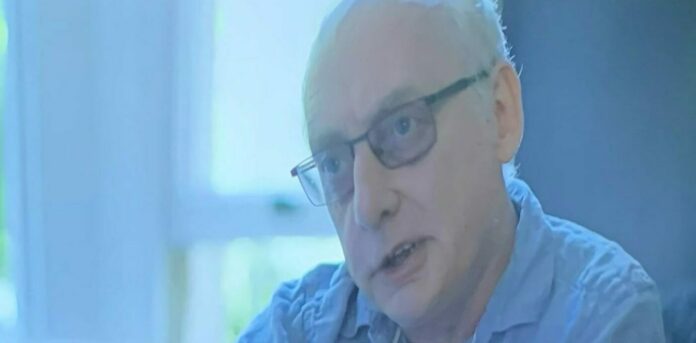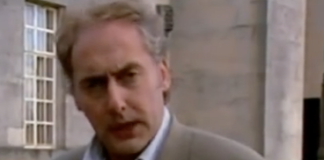- Opposites attract - 26th February 2026
- Upset coffee - 25th February 2026
- Not acting the part - 24th February 2026

During 23 years with the BBC, and a 41 year journalistic career (when he was trained to use clear and simple language, avoiding jargon), for our Editor, Welshman Phil Parry, a key factor was having Editorial independence, now there are signs this may be under threat, as political interference grows.
Throughout many years in journalism, it has been fundamental for me to do stories without interference.
Obviously I have always been happy to take advice from Editors, News Editors, Chief Sub-editors, as well as others in the newsroom.
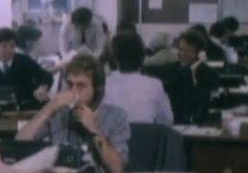
But advertisers, those in the marketing department, heads of personnel or politicians trying to tell me what to publish (which has happened), has always been a complete NO-NO!
In some ways I am happier now editing The Eye than I have ever been since I first started in journalism in 1983.
My website makes no money whatsoever, but at least I have NO ONE looking over my shoulder!
The picture, though, is changing and it may become harder for journalists like me to resist meddlesomeness.
 For example the celebrated television news and current affairs programme ‘60 minutes’ is at the centre of a storm where Editorial freedom is at stake.
For example the celebrated television news and current affairs programme ‘60 minutes’ is at the centre of a storm where Editorial freedom is at stake.
Its parent company Paramount, a century-old film and TV company that has struggled in the streaming era, agreed last year to be acquired by Skydance Media, a film company run by David Ellison, a tech heir.


But the deal has hit a problem in the form of a lawsuit from Donald Trump, who says that ’60 Minutes’ misleadingly edited an interview last year with his opponent, Kamala Harris.
The claim is paper-thin, however the threat is enough for many at Paramount to believe that unless the company admits fault, the government will block its life-saving merger with Skydance.
Yet this is not the only media firm to have become politically entangled by its news output.
 In Mr Trump’s first term, antitrust authorities tried (but failed) to stop AT&T’s acquisition of Time Warner, which at the time owned CNN, a persistent critic of the president.
In Mr Trump’s first term, antitrust authorities tried (but failed) to stop AT&T’s acquisition of Time Warner, which at the time owned CNN, a persistent critic of the president.
Last year as well, Disney’s ABC News paid Mr Trump $15 million to settle a defamation claim, and before his re-election Mr Trump argued that Comcast, a cable giant, should be investigated for treason over the “one-sided and vicious” output of its NBC News and MSNBC channels. A probe has also been launched into its diversity policies.
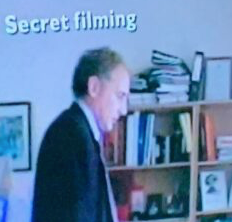 There has too been a watering down of serious analytical programmes, or the type of investigative stories such as I undertake, both for commercial reasons, and because of a fear it might upset influential people.
There has too been a watering down of serious analytical programmes, or the type of investigative stories such as I undertake, both for commercial reasons, and because of a fear it might upset influential people.
For instance, last year Amazon produced an election-night show in the United States of America (USA), but the only political content on its slate since then has been a $40 million ‘documentary’ about the first lady, Melania Trump.
All of this is extremely alarming for an independent journalist like me who believes passionately in a free media, and has echoes of what has taken place in the UK – where there has been Editorial interfering both for political and business reasons.

In the past there have been long battles to stop Rupert Murdock taking over certain news outlets, including the Observer.
After a victory in the Observer one by journalists (and others), it was acquired by the Lonrho group, whose boss was Tiny Rowland and his apparatchik was Edward du Cann.
I’ll let Alan Watkins tell you what happened next in his memoir A SHORT WALK DOWN FLEET STREET: “At the Observer he (Mr du Cann) tried, unsuccessfully, to get rid of Anthony Howard (a senior journalist): according to Du Cann, a dangerous socialist who was having a deleterious influence on the paper”.
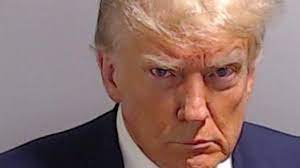
But what is happening now is even more worrying, because the interference comes from an elected President of the USA.
Historically there have been any number of fights led by journalists against tampering, or take overs of a media company by a mogul who was likely to interfere.
Some have been successful.
What is happening now, though, is likely to make resistance almost impossible…

The memories of Phil’s astonishing, decades long award-winning career in journalism (when Editorial interference was always strongly resisted) as he was gripped by the rare neurological disabling condition Hereditary Spastic Paraplegia (HSP), have been released in the book ‘A Good Story’. Order it now.








